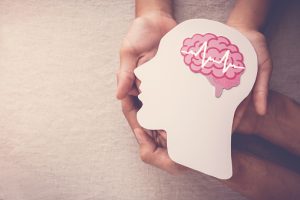It’s hard to take a full breath when your pain is so severe that it makes you feel like you can’t get enough air. Despite all of our advances in medicine, there are still times when we don’t know what to do for one another. That’s where neurologists come in. Neurologists are doctors who specialize in the nervous system, and they have some unique skills and techniques that work wonders on it. They can help by managing muscle spasms or reducing inflammation in a way that provides relief from pain. Here is their method of treating nerve pain.
What is Nerve Pain?
Nerve pain occurs when damage or a malfunction in your nervous system manifests in various levels of pain in your body. Roughly 9% of people experience nerve pain at some point in their life, according to the neurologist.
The problem can occur in your central or peripheral nervous system when they send the wrong signals to your pain centers. A neurologist can diagnose nerve issues and develop a treatment plan to manage the problem or its symptoms.
What Causes Nerve Pain?
 Nerve pain is a type of neuropathic pain that can arise from various causes. The most common cause is nerve damage or injury. Other causes are autoimmune disorders, infection, or even cancer.
Nerve pain is a type of neuropathic pain that can arise from various causes. The most common cause is nerve damage or injury. Other causes are autoimmune disorders, infection, or even cancer.
However, at the root of all these diseases lie problems with the transmission and processing of sensory signals. Although it can be difficult to pinpoint what’s causing the nerve pain, one thing is clear: there needs to be a way to reduce any inflammation in the area where the nerve is being affected by pain.
Nerve Pain can happen for many reasons, but these are some of the most common causes:
– Trauma
– Infections
– Autoimmune disorders
– Inflammation from other sources
How do Neurologists treat Nerve Pain?
Neurologists approach the treatment of nerve pain, also known as neuropathic pain, through a variety of methods depending on the underlying cause and severity of the condition. Here are some common approaches:
1. Medications: Neurologists often prescribe medications to manage nerve pain. These may include:
(A). Antidepressants: Tricyclic antidepressants (such as amitriptyline) and selective serotonin and norepinephrine reuptake inhibitors (such as duloxetine) can help relieve nerve pain.
(B). Anticonvulsants: Drugs like gabapentin and pregabalin are often used to treat neuropathic pain by stabilizing abnormal electrical activity in the nerves.
(C). Topical medications: Creams or patches containing lidocaine or capsaicin can provide relief for localized nerve pain.
2. Physical Therapy: Physical therapy can be beneficial in improving muscle strength, flexibility, and overall function, which may help reduce nerve pain.
3. Nerve Blocks: In some cases, nerve blocks may be administered to temporarily block the transmission of pain signals from specific nerves.
4. Transcutaneous Electrical Nerve Stimulation (TENS): TENS therapy involves applying low-voltage electrical currents to the skin over the painful area, which can help disrupt or block pain signals.
5. Acupuncture: Some patients find relief from nerve pain through acupuncture, a traditional Chinese therapy that involves inserting thin needles into specific points on the body.
6. Cognitive-Behavioral Therapy (CBT): CBT can help patients develop coping strategies and change negative thought patterns associated with chronic pain, which may reduce the perception of pain.
7. Lifestyle Modifications: Neurologists may recommend lifestyle changes such as maintaining a healthy diet, regular exercise, stress management techniques, and adequate sleep to help manage nerve pain.
8. Surgery: In cases where nerve pain is caused by compression of a nerve (such as carpal tunnel syndrome or herniated discs), surgical interventions may be necessary to relieve pressure on the affected nerve.
Reach Out to Jeff Steinberg MD for Nerve Pain Help!
Nerve pain poses a formidable challenge, but with the expertise of neurologists and an array of treatment modalities at their disposal, relief is within reach for many sufferers. By adopting a holistic approach that encompasses medication management, interventional procedures, physical therapy, psychological support, and lifestyle modifications, neurologists strive to alleviate pain, restore function, and enhance the overall quality of life for their patients battling neuropathic conditions.
Dr. Jeff Steinberg is an expert neurologist Fort Lauderdale with years of experience in treating nerve pain. Contact us at (954) 329-0053 for more information.
FAQs About Nerve Pain and Treatment
1. When should I see a neurologist for nerve pain?
If you experience persistent or severe nerve pain that interferes with your daily life or if it’s accompanied by other neurological symptoms, it’s advisable to consult a neurologist.
2. How do neurologists diagnose nerve pain?
Neurologists typically perform a comprehensive evaluation, which may include physical examinations, nerve conduction studies, electromyography (EMG), imaging tests like MRI or CT scans, and sometimes blood tests to identify underlying causes.
3. What are the treatment options neurologists offer for nerve pain?
Neurologists may recommend medications such as anticonvulsants, antidepressants, or opioids to manage nerve pain. Additionally, they may suggest physical therapy, nerve blocks, spinal cord stimulation, or other interventional procedures.
4. Are there any non-pharmacological treatments for nerve pain?
Yes, neurologists often recommend complementary therapies like acupuncture, biofeedback, transcutaneous electrical nerve stimulation (TENS), or relaxation techniques to help alleviate nerve pain.
5. Can nerve pain be cured completely?
In many cases, nerve pain can be managed effectively, but a complete cure may not always be possible, especially if the underlying cause is a chronic condition. The goal of treatment is often to minimize pain and improve quality of life.
6. Are there any lifestyle changes that can help with nerve pain?
Neurologists often advise patients to maintain a healthy lifestyle, including regular exercise, a balanced diet, stress management techniques, and avoiding activities or habits that exacerbate nerve pain.
7. Are there risks associated with long-term medication use for nerve pain?
Yes, certain medications used to manage nerve pain, such as opioids, can be associated with risks like tolerance, dependence, and side effects. Neurologists carefully weigh the benefits and risks when prescribing long-term medications.
8. Can nerve pain spread to other parts of the body?
Yes, in some cases, nerve pain can spread or radiate to adjacent or distant areas of the body. This phenomenon is known as referred pain and can occur due to the complex network of nerves in the body.
9. How long does it typically take to see improvement with nerve pain treatment?
The timeframe for improvement varies depending on factors such as the underlying cause, severity of the pain, and effectiveness of the chosen treatment. Some patients may experience relief relatively quickly, while others may require more time or adjustments to their treatment plan.
10. Are there support groups or resources available for people dealing with nerve pain?
Yes, many organizations and online communities provide support, resources, and information for individuals living with nerve pain. Neurologists may recommend these resources as part of a comprehensive treatment approach.
11. What should I do if my current treatment for nerve pain isn’t working?
If your current treatment isn’t providing adequate relief, it’s essential to communicate with your Fort Lauderdale Neurologist. They can reassess your condition, adjust your treatment plan, or explore alternative therapies to better manage your pain.
12. Can nerve pain affect mental health?
Yes, living with chronic nerve pain can have a significant impact on mental health, leading to conditions like depression, anxiety, or decreased quality of life. Neurologists may collaborate with mental health professionals to address these concerns as part of holistic pain management.

